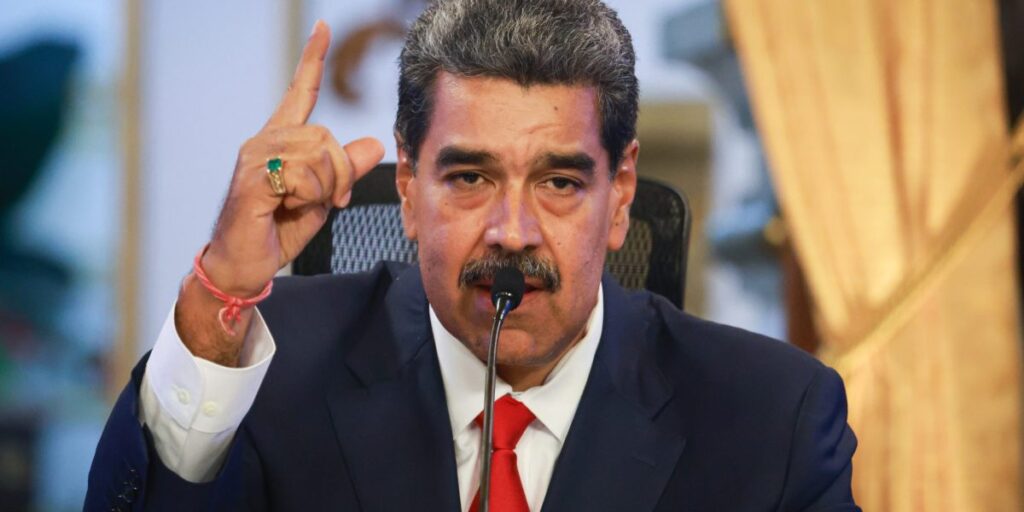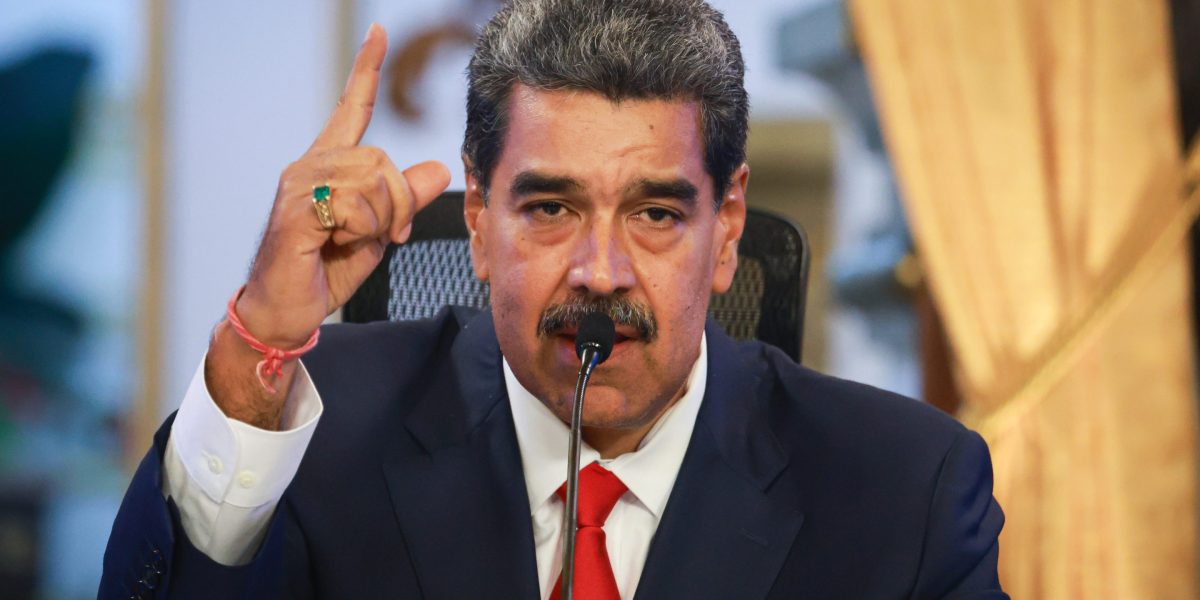Venezuelan strongman Nicolas Maduro blocks access to X as he accuses Elon Musk of ‘inciting hate and fascism’
Venezuelan President Nicolas Maduro suspended access to X as he faced renewed pressure from a trio of friendly Latin American nations to release data proving his claimed reelection was valid.


Venezuelan President Nicolas Maduro suspended access to the social media site X on Thursday, as he faced renewed pressure from a trio of friendly Latin American nations to release data proving his claimed reelection was valid.
The president announced his government was blocking the social media platform formerly known as Twitter for 10 days, while accusing the site’s owner Elon Musk of “inciting hate and fascism” in Venezuela.
Election authorities declared Maduro the winner of the July 28 vote but have yet to release detailed results, leading left-wing allies Brazil, Colombia and Mexico on Thursday to reiterate a joint call on the National Electoral Council (CNE) to disclose polling records.
Protests sparked last week by the declaration of Maduro’s victory left at least 24 people dead, according to rights groups, with thousands also arrested.
The Venezuelan opposition claims to have won in a landslide and warned Thursday of a potential mass exodus if Maduro is allowed to remain in power.
“If Maduro chooses to stay by force, the only thing we will see is a wave of migration like never before: three, four, five million Venezuelans in a very short span of time,” opposition leader Maria Corina Machado — who was barred from running in the election — said in a video conference with Mexican news outlets.
According to the United Nations, more than seven million Venezuelans have fled the country of 30 million since Maduro took over in 2013, mostly to other Latin American countries and the United States.
Maduro has overseen an unprecedented economic crisis, including an 80 percent drop in the once-wealthy oil-rich country’s GDP, amid domestic economic mismanagement and international sanctions.
Washington has spearheaded sanctions against the Maduro regime and on Thursday threatened that further measures would be taken if Maduro were to arrest Machado or Edmundo Gonzalez Urrutia, the retired diplomat who stood as the opposition candidate in the election.
“I think that would be a step that could mobilize the international community even more, even those that might be somewhat sympathetic and don’t want to rattle things too much in Venezuela,” Francisco Mora, US ambassador to the Organization of American States, said at the Atlantic Council, a Washington-based think tank.
Machado — who says she fears for her life — and Gonzalez Urrutia have been in hiding for more than a week.
Highlighting the opposition’s perilous security situation, two other leaders were arrested Thursday, party officials and family members said.
Ex-lawmakers Williams Davila and Americo De Grazia were arrested separately, adding to the growing list of reported sudden post-election detainments.
‘International hysteria’
The public prosecutor’s office has opened a criminal probe against Machado and Gonzalez Urrutia for “usurpation of functions, diffusion of false information, incitement to disobedience of the laws, incitement to insurrection” and “criminal association.”
Citing his fear that he would be “jeopardizing” his freedom if he did so, Gonzalez Urrutia on Wednesday defied a Supreme Court summons over the disputed results.
The court summoned all presidential candidates, including Maduro, and other opposition politicians, some of whom did attend. Maduro is due to appear before the court on Friday.
Fellow left-wing governments from Brazil, Colombia and Mexico praised the verification process undertaken by the court but released a statement saying that they “start from the premise that the CNE is the organ legally mandated to transparently disclose the electoral results.”
Critics say the court, and the electoral authority, are unfailingly loyal to Maduro, who wants the body to simply “validate” his victory.
The CNE ratified Maduro’s victory with 52 percent of votes, but did not publish detailed results and even claimed to have been hacked.
The opposition has launched a website with copies of 84 percent of ballots cast, showing an easy win for Gonzalez Urrutia with two-thirds of votes. The government claims those are forged.
The opposition and several observers accuse the CNE of inventing the hack at the government’s behest to avoid publishing the real results.
Vice President Delcy Rodriguez on Thursday hit out at the international community and critics on social media for “an international hysteria around the (election) minutes, they could even make a Netflix series.”
Maduro on Thursday night told a rally of supporters that X, formerly Twitter, would be “withdrawn from circulation” by the state agency in charge of telecommunications. He did not give details on how the suspension would work.
“No one will silence me, I will confront the espionage of the technological empire,” he said, accusing American billionaire Musk of “inciting hatred and fascism.”
Jennie Lincoln, head of the Carter Center delegation that was invited to monitor the Venezuelan election, told AFP that that US-based organization had “no evidence” of a cyberattack.
In addition to the protester deaths, Maduro announced the death of two police officers and the arrest of more than 2,200 people.





